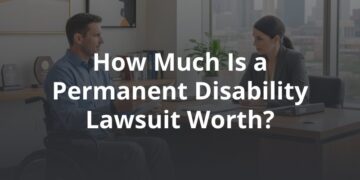Being involved in a personal injury claim often entails lengthy and strenuous negotiations with an insurance company, in hopes of an acceptable settlement. The insurance company’s first offer will rarely be the figure you are looking for—in fact, it may be much lower than you had hoped. If you receive a low-ball offer, there are some things you can do to counter it successfully.
First, evaluate carefully any offer you receive from the insurance company. Review the offer with your attorney, taking care to read its terms and conditions and note the amount being offered. Try hard to stay professional. Remember that you will need to continue a good working relationship with the insurance company in order to reach a settlement.
How do you know whether a settlement offer is too low?
By the time your settlement offer comes in, your attorney should have thoroughly explored the facts of your case, ascertained your damages, collected relevant evidence, and performed a reasonably accurate valuation of what your case is worth. Generally speaking, the settlement offer should compensate for your damages. This might include concrete damages like medical bills and lost wages, or more subjective damages like pain and suffering and a decreased quality of life. If your settlement offer does not, then the offer is likely too low to accept.
How to Counter-Offer an Insurance Settlement
From the standpoint of procedure, you will need to make a counter-offer in writing. Be sure you send your letter to the appropriate person, whether that be an insurance adjuster or an attorney. Make it clear that you are rejecting their initial offer and include your reasons for doing so. If they provided written reasons for their low initial figure, you should also respond to those in writing. Include in your letter your willingness to compromise and the amount that you would accept in order to resolve the case, also known as your counter-offer.
How do you calculate your counter-offer amount?
Before you counter, keep your emotions at bay. A low-ball offer can make anyone feel upset or insulted, but remember that the insurance company’s first offer is just the beginning of the negotiations. To establish your counter-offer amount, you will need to think critically about your damages, the limits of the other party’s policy, as well as their potential assets.
Gather information and supporting documentation about the amount of damages you have incurred. In these calculations, you should include the following:
- Your medical bills, including any hospital stays, doctor’s visits, medical tests, and prescription costs
- Any bills you have incurred as a result of damage to your personal property, such as mechanic’s bills or insurance deductibles
- Information regarding the wages you have lost as a result of being unable to work
- Evidence of your general damages, whether that be the extent and duration of your pain, therapy visits to combat mental anguish, or proof that you are no longer able to do activities that you had enjoyed before your injury
Note that your special damages — those out-of-pocket costs which can be readily ascertained, such as medical bills — will likely be much easier to prove than your general damages, which include such non-economic losses as pain and suffering, mental anguish, and loss of future income. Those general damages can also be the largest part of the settlement, leaving much room for negotiation. Typically, the insurance company will use a specific formula — called a general damages multiplier — to arrive at its calculation of damages. Because that multiplier can vary and can greatly influence the amount of your recovery, it is important to consult with a personal injury attorney about proving general damages successfully.
Once you have arrived at an accurate figure for your damages, you’ll need to compare that figure to the value of the insurance company’s offer. Then, determine what is a reasonable ask, based on the difference and also based on the policy limits and available assets. Your counter-offer will probably be slightly lower than the amount you originally asked for in your initial demand letter, but not so low that it won’t compensate you for your losses adequately.
What can you expect once you counter?
After submitting your counter-offer, you will need to continue maintaining patience through the process. It is common for a back-and-forth to occur in personal injury claims. Your counter-offer may be met with another counter-offer by the insurance company, and so forth. Staying patient and level-headed, and being prepared to present evidence and documentation to back up your claims will help endure the sometimes-lengthy process of settlement negotiations.
Once you and the insurance company agree on a settlement amount, you will sign a settlement agreement and a release form. It is in your best interest to retain the services of an experienced, knowledgeable personal injury attorney to go over these documents, as well as to negotiate with the insurance company on your behalf. At FVF, our goal is to arm you with the knowledge and support you need to stand up to insurance providers. Contact us today to get started.








